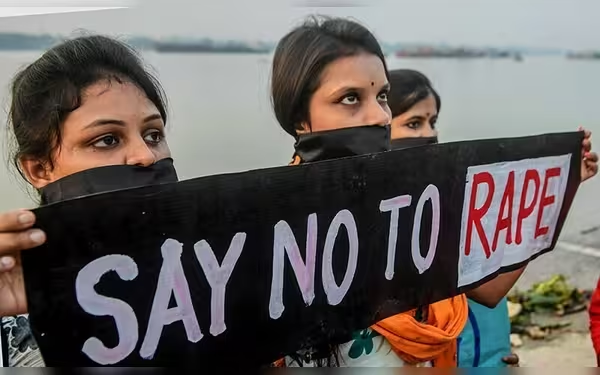Sunday, October 6, 2024 12:22 AM
Indian Government Opposes Stricter Marital Rape Penalties
- Indian government urges court against tougher marital rape laws.
- Current laws date back to 19th century colonial rule.
- Activists demand recognition of marital rape as a crime.
 Image Credits: dawn.com
Image Credits: dawn.comIndian government requests Supreme Court not to impose stricter penalties for marital rape, amid ongoing advocacy for women's rights.
In a significant legal development, the Indian government has urged the Supreme Court not to impose stricter penalties for marital rape. This request comes amid an ongoing case initiated by activists who are advocating for the criminalization of marital rape in India. The current legal framework, which dates back to the 19th century during British colonial rule, explicitly states that "sexual acts by a man with his own wife […] is not rape." This outdated provision has sparked widespread debate and concern among women's rights advocates and legal experts alike.
The issue of marital rape has long been a contentious topic in India. Many argue that the existing laws fail to protect women within marriage, allowing for a culture of silence and acceptance of violence. Activists believe that recognizing marital rape as a crime is essential for safeguarding women's rights and promoting gender equality. They contend that marriage should not be a shield for abuse, and that consent is a fundamental aspect of any sexual relationship.
On the other hand, the government's stance reflects a complex interplay of cultural, social, and legal factors. Officials argue that changing the law could have far-reaching implications for family dynamics and societal norms. They express concerns that criminalizing marital rape might lead to misuse of the law, potentially disrupting the sanctity of marriage. This perspective highlights the deep-rooted beliefs about marriage and gender roles that persist in many parts of Indian society.
As the case unfolds, it raises critical questions about the balance between tradition and modernity, as well as the role of the legal system in addressing issues of gender-based violence. The debate is not just about legal definitions; it is about the recognition of women's autonomy and the right to live free from violence, even within the confines of marriage.
The discussion surrounding marital rape in India is emblematic of broader societal challenges. It underscores the need for a legal framework that reflects contemporary values and protects the rights of all individuals. As the Supreme Court deliberates on this matter, the outcome could set a precedent for how marital relationships are viewed in the eyes of the law, potentially reshaping the landscape of women's rights in India for generations to come.













